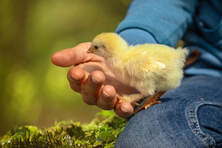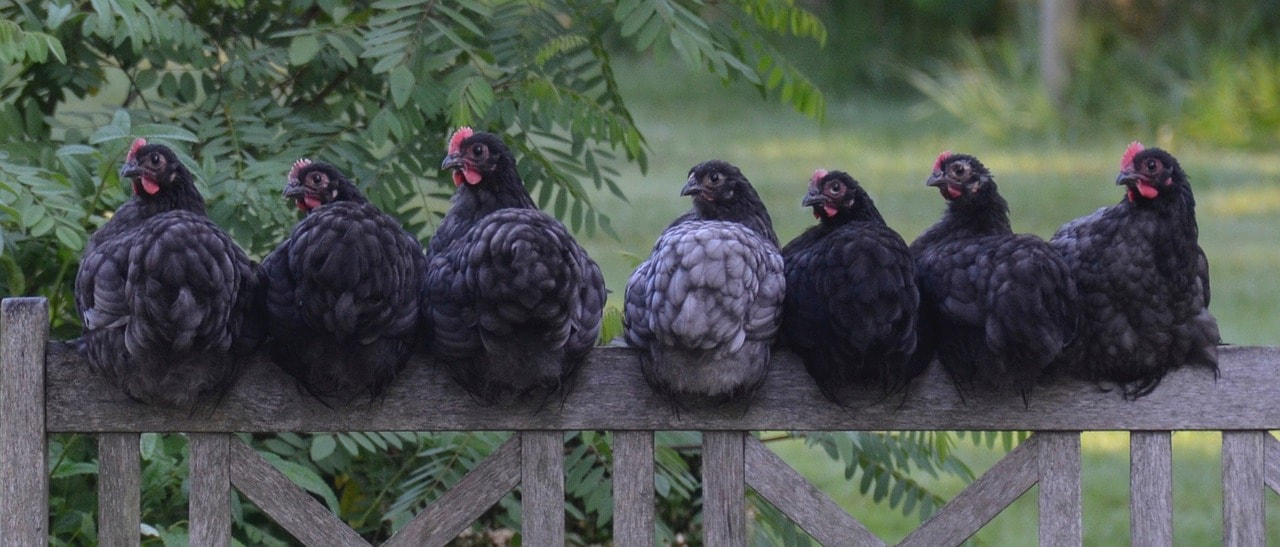Why Chicken Manure... as Pellets?

We love chicken manure! What organic farmer hasn't at least dabbled with the stuff? But Chicken manure has problems and challenges, without a doubt.
Here at Happy Bunny, we have resolved all of the downsides of dealing Chicken Manure, so that you can enjoy all the benefits. How did we do it? In a word... Pelletization!
Overall, the pelletization process helps to transform raw chicken manure into a more user-friendly, manageable, and plant-friendly form, making it a preferred choice for many gardeners and agricultural applications. By pelletizing chicken manure, we are able to offer several advantages over using raw or unprocessed chicken manure in the garden:
Here at Happy Bunny, we have resolved all of the downsides of dealing Chicken Manure, so that you can enjoy all the benefits. How did we do it? In a word... Pelletization!
Overall, the pelletization process helps to transform raw chicken manure into a more user-friendly, manageable, and plant-friendly form, making it a preferred choice for many gardeners and agricultural applications. By pelletizing chicken manure, we are able to offer several advantages over using raw or unprocessed chicken manure in the garden:
- Reduced odor: Chicken manure pellets are less odorous compared to raw manure. Pelletizing the manure helps to reduce the strong, pungent smell associated with fresh chicken manure, making it more pleasant to handle and use in the garden.
- Easier application: Pelletized chicken manure is easier to handle and apply than raw manure. The pellets are uniform in size and shape, making them convenient to spread by hand or with a spreader. This can lead to more precise and efficient application in the garden.
- Reduced risk of burning plants: Fresh chicken manure is high in nitrogen and can potentially burn plants if applied in excessive amounts or in its raw form. Pelletizing the manure helps to mitigate this risk by creating a slow-release fertilizer that releases nutrients more gradually, reducing the likelihood of damage to plants.
- Improved storage and handling: Pelletized chicken manure is more stable and easier to store than raw manure. The pellets are less prone to issues such as moisture retention, clumping, and potential pathogens, making them more convenient for storage and transport.
- Enhanced nutrient concentration and Soil Building: Pelletizing allows for the concentration of nutrients in a more compact and manageable form. This can make it easier to calculate and apply the desired amount of nutrients to the soil, leading to more precise fertilization.
- Nutrient-rich: Chicken manure is high in nitrogen, phosphorus, and potassium, making it an excellent source of nutrients for plants. These essential nutrients can promote healthy growth and improve the overall health of the soil.
- Organic matter: Chicken manure adds organic matter to the soil, which can improve soil structure, water retention, and aeration. This can be particularly beneficial for heavy clay soils or overly sandy soils.
- Soil conditioning: Chicken manure pellets can help condition the soil, making it more fertile and conducive to plant growth. Over time, the organic matter in the pellets can improve soil texture and encourage the growth of beneficial microorganisms.
- Slow-release fertilizer: When chicken manure is pelletized, it becomes a slow-release fertilizer. This means that the nutrients are released gradually over time, providing a steady and consistent source of nourishment for plants.
- Environmentally friendly: Using chicken manure pellets in the garden can be a sustainable way to recycle waste from poultry operations, reducing the environmental impact of this waste while providing a valuable resource for gardeners. However, it's important to note that chicken manure should be properly composted or aged before use to avoid the risk of burning plants due to its high nitrogen content. Additionally, it's essential to follow application guidelines to prevent over-fertilization and potential environmental issues.
Overall, the pelletization process helps to transform raw chicken manure into a more user-friendly, manageable, and plant-friendly form, making it a preferred choice for many gardeners and agricultural applications.
This Website is Proudly Powered by our Happy Horde of Rabbits

